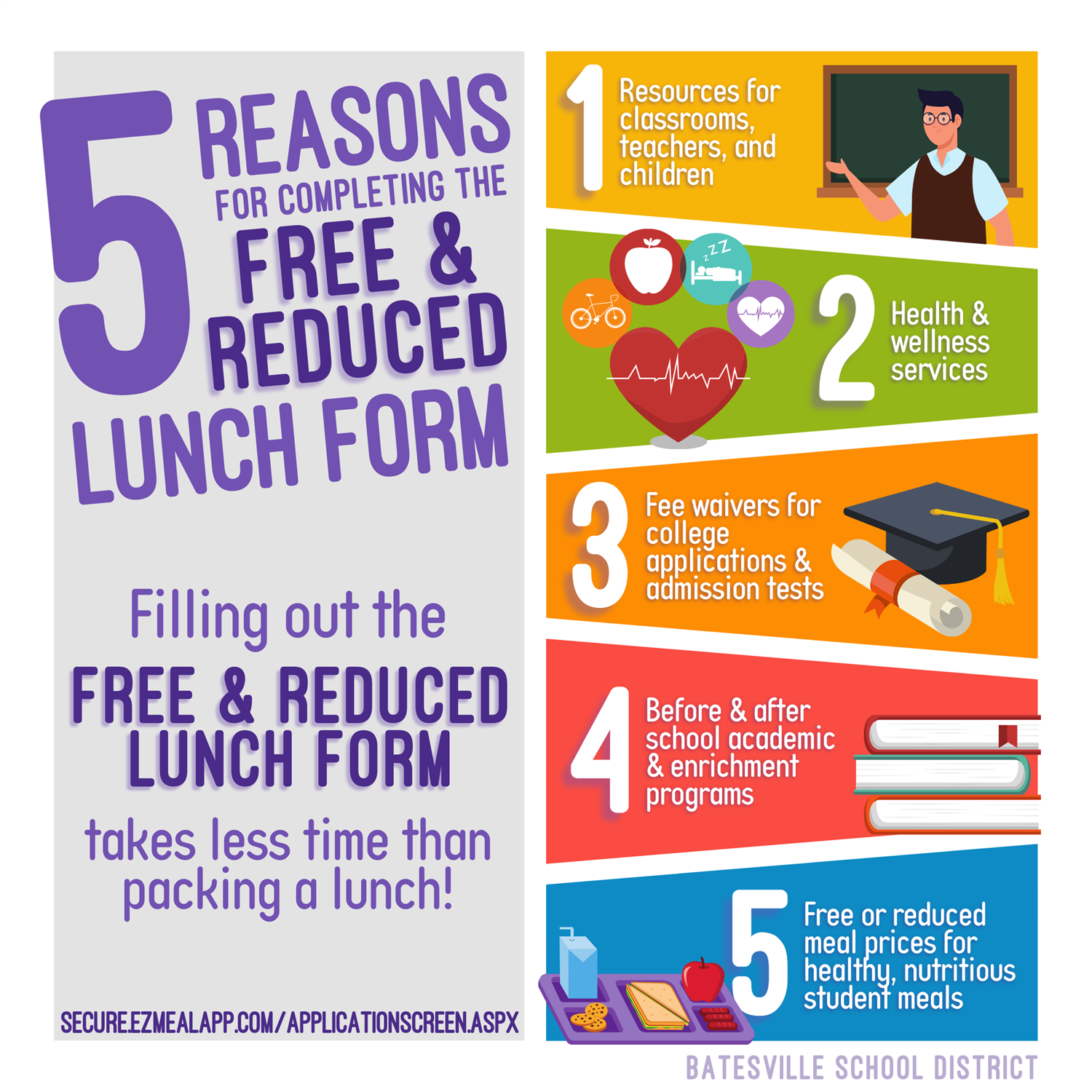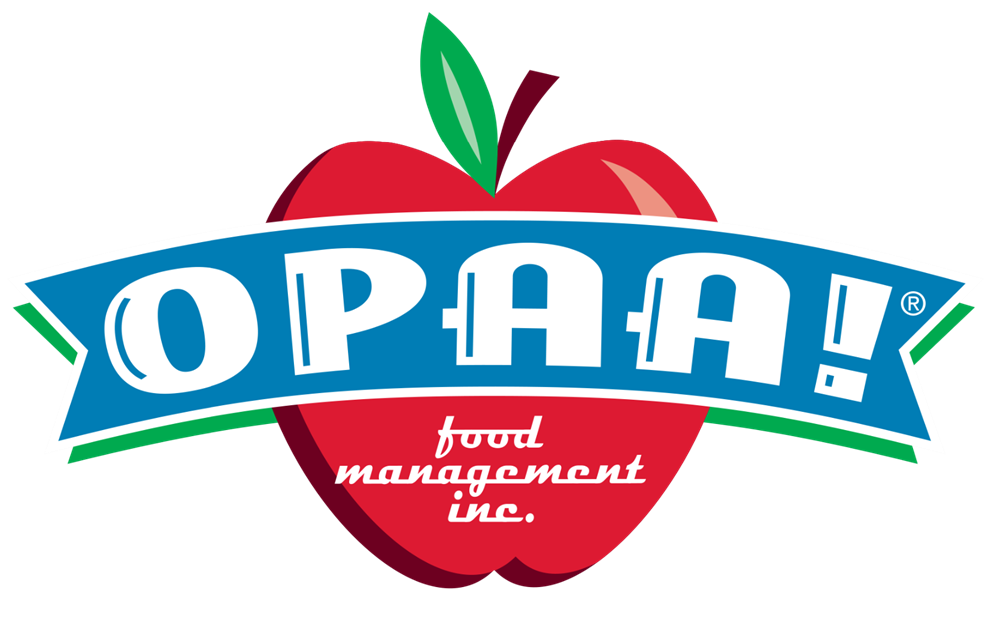- Batesville School District
- Food Service
Departments
Page Navigation
-
FOOD SERVICE
Free and Reduced Lunch Form
-
Free and Reduced Lunch Form (FRLF)Filling out the Free & Reduced Lunch Form takes less time than packing a lunch!5 Reasons for Completing the Free & Reduced Lunch Form:
 Resources for classrooms, teachers, and children
Resources for classrooms, teachers, and children Health & wellness services
Health & wellness services Fee waivers for college applications & admission tests
Fee waivers for college applications & admission tests Before & after school academic & enrichment programs
Before & after school academic & enrichment programs Free or reduced meal prices for healthy, nutritious meals
Free or reduced meal prices for healthy, nutritious meals
Facts and Figures
-
 OPAA Food Service
Child Nutrition Reimagined
OPAA Food Service
Child Nutrition Reimagined
Meal Prices
-
MEAL PRICES
Breakfast
- Universal FREE for all students
Lunch
- Preschool- Grade 5: $2.50
- Grade 6-12: $2.75
- Reduced Price: Eat at no charge
Extra Milk: $0.50
Adults
- Breakfast: $2.50
- Lunch: $3.50
A la Carte is additional cost (drinks, snacks, sides, extra milk, etc.)
Breakfast for All Students at No Cost
-
Every child should start the school day with a healthy breakfast. Studies show that students who skip breakfast generally have slower memory recall, make more errors and are more likely to be absent or tardy and to repeat a grade. Students who eat breakfast generally have better vitamin and nutrient intake, enjoy overall healthier diets and are less prone to being overweight or obese.
Skipping Breakfast has a Negative Effect on Health: When students miss a healthy morning meal they go to class hungry. Hunger is associated with lower physical activity, stomachaches, headaches, depression, anxiety and a decreased ability to focus.
Skipping Breakfast has a Negative Impact on Learning: Studies show that students who skip breakfast generally have slower memory recall, make more errors and are more likely to be absent or tardy and to repeat a grade.
Improved School Achievements: Students who eat breakfast consistently show improvement in verbal fluency, arithmetic, tests of attention, memory, creativity, physical endurance, and general tests of academic achievement and cognitive functioning.
Improved Memory, Listening Skills: A Tufts University study showed elementary school students who eat breakfast listen better and have better spatial memory and short-term memory than students who skip breakfast.
Better Behaved: Researchers found low-income students who ate meals at school were less likely to be hyperactive and had fewer behavioral or attention problems than their hungry peers.
Higher Rates Of Attendance: Studies show that universal school breakfast program participation is associated with higher rates of attendance and declines in tardiness.
DNS of the Year - Glenda Haley

Non-Discrimination Statement
-
Non-Discrimination Statement
In accordance with federal civil rights law and U.S. Department of Agriculture (USDA)
civil rights regulations and policies, this institution is prohibited from discriminating on
the basis of race, color, national origin, sex (including gender identity and sexual
orientation), disability, age, or reprisal or retaliation for prior civil rights activity.
Program information may be made available in languages other than English. Persons
with disabilities who require alternative means of communication to obtain program
information (e.g., Braille, large print, audiotape, American Sign Language), should
contact the responsible state or local agency that administers the program or USDA’s
TARGET Center at (202) 720-2600 (voice and TTY) or contact USDA through the
Federal Relay Service at (800) 877-8339.To file a program discrimination complaint, a Complainant should complete a Form AD-
3027, USDA Program Discrimination Complaint Form which can be obtained onlineat: https://www.usda.gov/sites/default/files/documents/USDA-OASCR%20P-Complaint-
Form-0508-0002-508-11-28-17Fax2Mail.pdf, from any USDA office, by calling (866)632-9992, or by writing a letter addressed to USDA. The letter must contain the
complainant’s name, address, telephone number, and a written description of the
alleged discriminatory action in sufficient detail to inform the Assistant Secretary for Civil
Rights (ASCR) about the nature and date of an alleged civil rights violation. The
completed AD-3027 form or letter must be submitted to USDA by:
1. mail:
U.S. Department of Agriculture
Office of the Assistant Secretary for Civil Rights
1400 Independence Avenue, SW
Washington, D.C. 20250-9410; or
2. fax:
(833) 256-1665 or (202) 690-7442; or
3. email:
program.intake@usda.govThis institution is an equal opportunity provider.


